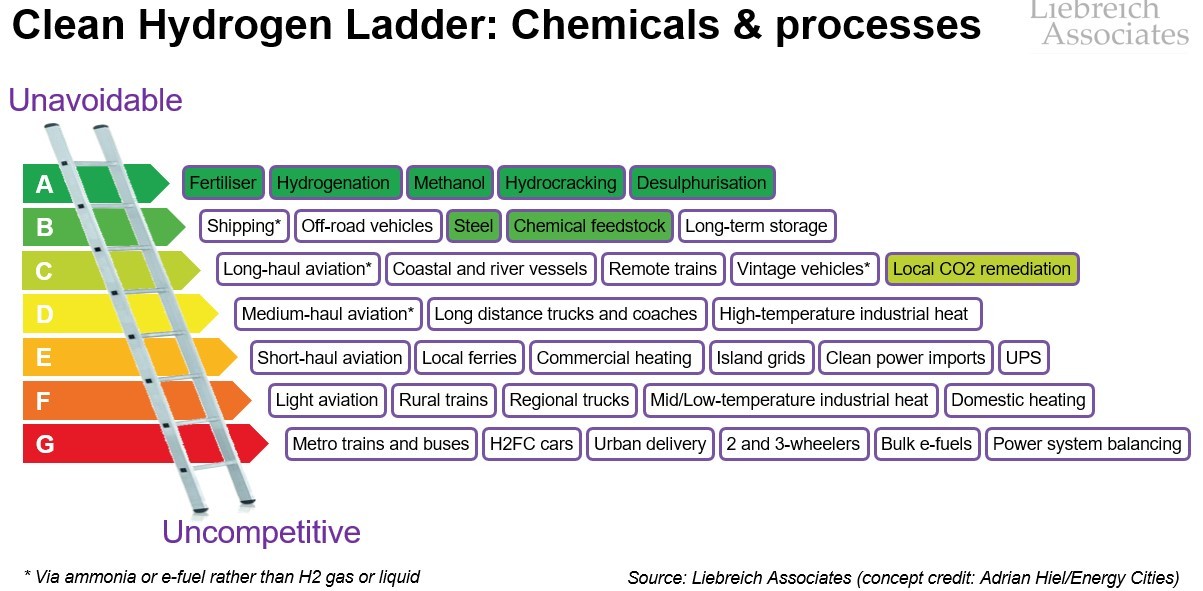The Emptiness of Doebbler – a Davos Conversation Misrepresented
During this year’s Davos meetings, I made sure to visit the Occupy WEF camp. There I met Curtis Doebbler, professor of law at Webster University in Geneva, Switzerland. At the time I did not know his rather colourful hsitory of anti-americanism. We had an animated and fascinating discussion: he supported the ongoing UNFCCC process, drawing on his knowledgeable of international law; I argued it needed reform, drawing on my knowledge of investment activity in climate solutions. So far so good. What was not good was that he went on to misrepresent my position in a piece entitled “The Emptiness of Davos” in Al Ahram newspaper.
Curtis Doebbler’s reporting of a conversation we had at the Occupy WEF igloo encampment, which he covers in his piece “The Emptiness of Davos”, contains material inaccuracies. I was worried at the time that he was not listening to what I was saying, and his account confirms I was right. Professor Doebbler states that “Mr Liebreich thinks that the global problem of climate change can be solved by private action based on self-interest.” What I actually said, repeatedly, was that I believe the problem will require legislative intervention at multiple levels. He says I was “adamant that consensually agreed rules just don’t work”. What I actually said was that we need agreed rules across a broad range of sectors.
What appears to have upset the good professor, and to have led him to misrepresent my position, is that I simply don’t think a top-down, legally binding international cap on carbon emissions – on which he and others have been working unsuccessfully for years – is either necessary or achievable.
In the seventeen years since the Rio Earth Summit, the world’s leaders have convened 17 times to try to put such an agreement in place. The nearest they have come is the Kyoto Protocol, which did nothing to constrain the emissions of the world’s two largest emitters, and since which the world’s emissions have grown by nearly 50%. At the seventeenth COP meeting in Durban at the end of last year, the negotiators hailed as a triumph an agreement to try to come to a deal in four years – a deal which, even if it happens, on past form is unlikely to be either ambitious enough, ratified, binding or implemented.
Meanwhile, by contrast, in the past seven years my team has tracked over $1 trillion of investment in clean energy around the world, deal by deal, project by project. What I believe, as I explained to Professor Doebbler, is that we should be focusing at all levels – local, municipal, state, national, bilateral and multilateral – on action which accelerates the roll-out of solutions, rather than wasting time and credibility on a failed approach.
So yes, my commitment to capitalism is, as Doebbler says, “unshaking” – as long as we are talking about regulated capitalism, which has demonstrably started to work even in the most intractable area of climate change mitigation. And yes, I believe we can resolve climate change, as long as we disaggregate it from all the other problems in the world. Climate change is mainly about shifting to clean energy, reducing deforestation and changing agricultural practices. Experience shows that each of these problems yields to solutions. We can even find the $100bn per annum that is required for the solutions to be rolled out across the developing world, including new technologies, as I have written elsewhere (Towards a Green Climate Finance Framework).
What we can’t do is solve the problem of climate change if we set as a condition that all historical wrongs must be righted at the same time and using the same tools – which appears to be Doebbler’s position. This is pure grandstanding and obstructionism.
Do we want to address climate change? Then let us do so using proven tools. Or do we want to demonstrate machismo to some private constituency? Had he read my 2012 Davos blog, Doebbler would have realised that I am not at all in thrall to the incumbent constituencies mainly represented in Davos. I am an analyst. My only aim is to shine a light on what works, and what could work better. What is Professor Doebbler’s agenda?
My final word is for the editors of Al Ahram. I wrote to them explaining Professor Doebbler’s misreprentation of my position. Not to have published my letter as a comment, linked to his article, is a lapse of their normally high editorial standards – one I am sure they will still want to correct.
Terms of use: photos and other media may be used exclusively for the purpose of publicising an upcoming or past event involving Michael Liebreich, or to illustrate an article written by him. Their use must be accompanied by a clear indication of copyright in the following form:
© Liebreich Associates/name of photographer. Photos or other media downloaded in this way remain the property of Liebreich Associates Ltd. Any infringement of these terms of use may result in legal action by Liebreich Associates Ltd or by the respective photographer or rights holder.





